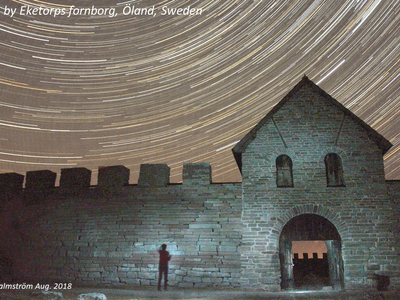Lectures and seminars
MJ2673 Research Methodology and Theory of Science 7.5 credits

- Introduction to theory scientific
- Research methodology and methods
- Scientific writing - focus thesis
- Plagiarism and copyright
- Reference management and source criticism
- Ethics and gender in research
Information per course offering
Information for Autumn 2024 Start 26 Aug 2024 programme students
- Course location
KTH Campus
- Duration
- 26 Aug 2024 - 13 Jan 2025
- Periods
- P1 (4.0 hp), P2 (3.5 hp)
- Pace of study
25%
- Application code
50100
- Form of study
Normal Daytime
- Language of instruction
English
- Course memo
- Course memo is not published
- Number of places
Places are not limited
- Target group
- No information inserted
- Planned modular schedule
- [object Object]
- Schedule
- Part of programme
Contact
Course syllabus as PDF
Please note: all information from the Course syllabus is available on this page in an accessible format.
Course syllabus MJ2673 (Autumn 2023–)Content and learning outcomes
Course disposition
Course contents
The course Research Methodology and Theory of Science will give you deeper understanding of science and its different paradigms. The course will improve your skills in doing research projects and carrying out your Master thesis work. The course will cover quantitative and qualitative methods for sustainability research.
Intended learning outcomes
After finishing the course, the student should be able to:
- Reflect on what is science and underlying ideas
- Reflect on true and false science
- Debate about the role of science in society
- Explain requirements on a scientific work.
- Explain the most common scientific methods and tools for sustainability research, such as case study, surveys, interviews, data analysis, experimental methods and field studies
- Explain and apply rules for copying, citation and referencing.
- Critically review and constructively comment on a finalized thesis work/scientific paper with respect to aims, relevance, objectives, methods/theory, evidence and uncertainty.
- Design a framework for own Master thesis work/research paper, including for example thesis structure, research question/hypothesis, aims, relevance, methods and generalization of results.
Literature and preparations
Specific prerequisites
At least 150 higher education credits in science or technology.
Courses from upper secondary school corresponding to the courses Eng B/6 according to the Swedish upper secondary school system or equivalent.
Equipment
Literature
Will be announced at the beginning of the course
Examination and completion
If the course is discontinued, students may request to be examined during the following two academic years.
Grading scale
Examination
- NÄR1 - Attendance, 1.5 credits, grading scale: P, F
- PRO1 - Project Work and Presentation, 3.0 credits, grading scale: A, B, C, D, E, FX, F
- UPP3 - Home Assignment 1, 1.5 credits, grading scale: A, B, C, D, E, FX, F
- UPP4 - Home Assignment 2, 1.5 credits, grading scale: A, B, C, D, E, FX, F
Based on recommendation from KTH’s coordinator for disabilities, the examiner will decide how to adapt an examination for students with documented disability.
The examiner may apply another examination format when re-examining individual students.
Opportunity to complete the requirements via supplementary examination
Opportunity to raise an approved grade via renewed examination
Examiner
Ethical approach
- All members of a group are responsible for the group's work.
- In any assessment, every student shall honestly disclose any help received and sources used.
- In an oral assessment, every student shall be able to present and answer questions about the entire assignment and solution.